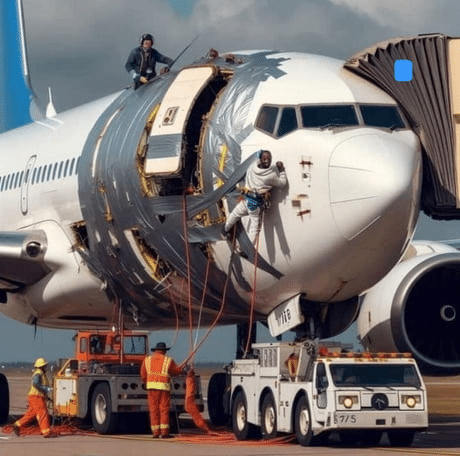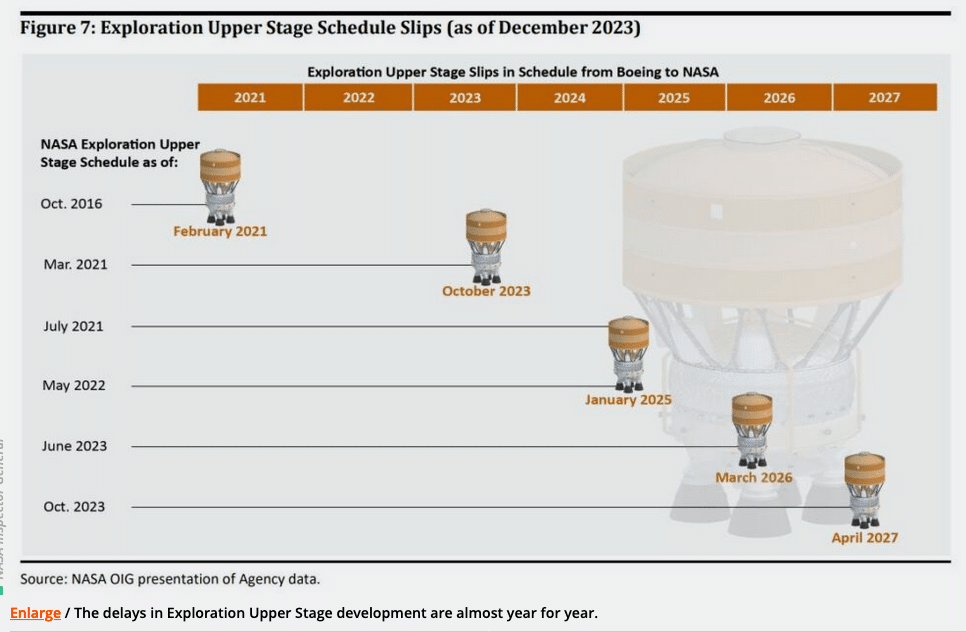
We all know what is happening now with the Boeing disaster in space where two astronauts are marooned and the billion dollar taxicab is not only malfunctioning but can’t be undocked without a human inside piloting the capsule away.
Boeing was contracted by Never Ascend to Space Again (NASA) to develop a new upper stage for the Space Launch System (SLS) rocket and it’s seven years behind schedule and significantly over budget.
The new Exploration Upper Stage, a more powerful second stage for the SLS rocket that made its debut in late 2022, is viewed by NASA as a key piece of its Artemis program to return humans to the Moon. The current plan calls for the use of this new upper stage beginning with the second lunar landing, the Artemis IV mission, currently scheduled for 2028. In NASA parlance, the upgraded version of the SLS rocket is known as Block 1B.
As for the upper stage itself, NASA initially predicted development costs would be $962 million back in 2017. However, the new report predicts that the Exploration Upper Stage will actually cost $2.8 billion, or three times the original cost estimate. (For what it is worth, Ars used a simple estimating tool in 2019 to predict the Exploration Upper Stage development cost would be $2.5 billion. So it’s not like it was a huge secret that NASA and Boeing would blow out the budget here).
Of course.
https://arstechnica.com/space/2024/08/a-new-report-finds-boeings-rockets-are-built-with-an-unqualified-work-force/
And then you read the NASA Inspector General report.
Oh boy.
We project SLS Block 1B costs will reach approximately $5.7 billion before the system is scheduled to launch in 2028. This is $700 million more than NASA’s 2023 Agency Baseline Commitment, which established a cost and schedule baseline at nearly $5 billion. EUS development accounts for more than half of this cost, which we estimate will increase from an initial cost of $962 million in 2017 to nearly $2.8 billion through 2028. Boeing’s delivery of the EUS to NASA has also been delayed from February 2021 to April 2027, and when combined with other factors, suggests the September 2028 Artemis IV launch date could be delayed as well. Factors contributing to these cost increases and schedule delays include redirection of EUS funds to the core stage during Artemis I production, changing Artemis mission assignments, maintaining an extended workforce 7 years more than planned, manufacturing issues, and supply chain challenges.
A delay of seven years and a tripling of costs for a system that if the track record is any indication will not be on time and will be more than that.
In December 2023, the SLS Program completed its Block 1B ABC after 10 years of development with no baseline and much later in the project life cycle than NASA’s standard practice.
Ten years with no baseline. You can’t make this up.
The government needs to completely reassess why it enters into any contracts with Boeing. They should be banned from any Federal programs now and in the future.
Email me at cgpodcast@pm.me.































